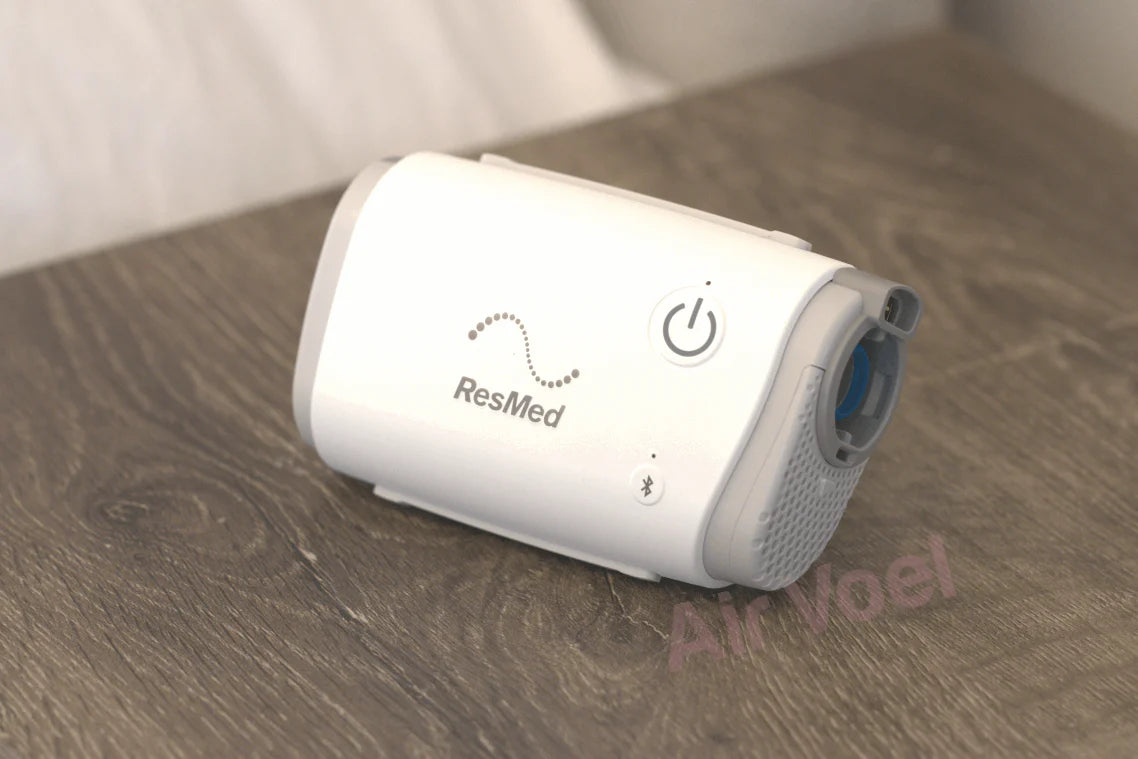Pour les personnes souffrant d'apnée du sommeil, le confort et l'efficacité du traitement par PPC (pression positive continue) reposent sur un facteur crucial : l'inconfort lié à la PPC est défini par la facilité d'utilisation, l'adéquation, l'adhérence et le confort du masque. Un masque bien ajusté est essentiel, car un masque mal ajusté peut entraîner inconfort, fuites et interruptions du sommeil, ce qui nuit à l'efficacité du traitement. Heureusement, la plupart des magasins proposant des appareils de PPC au Canada offrent des services garantissant un ajustement parfait selon les besoins des patients. Dans cet article, je vous explique comment faire ajuster votre appareil de PPC chez les détaillants canadiens afin d'améliorer votre traitement et la qualité de votre sommeil.
Pourquoi l’ajustement des appareils CPAP est-il important ?
C'est pourquoi il est nécessaire d'avoir un appareil CPAP sur mesure : chaque visage est unique. Le problème avec les masques, c'est qu'il est clair que cette taille unique n'est pas adaptée, esthétique ou même confortable pour tout le monde. Un ajustement parfait améliore également le confort ; le masque doit être bien ajusté pour éviter les fuites d'air, qui pourraient affecter le traitement administré. Les masques peuvent également être bien ajustés pour éviter les points de pression ; ainsi, les éruptions cutanées et les douleurs seront minimes, voire inexistantes.
Processus pour obtenir un ajustement correct de l'appareil respiratoire
Ance avec un spécialiste CPAP
Pour l'ajustement de son appareil CPAP, le patient doit d'abord prendre rendez-vous avec un spécialiste dans un magasin qui vend des appareils CPAP au Canada. Plus tard, lors de la consultation, le spécialiste s'enquiert de vos habitudes de sommeil, des problèmes rencontrés avec différents masques et de vos préférences en matière de confort. Ces informations lui permettent de déterminer le type de masque le plus adapté à ses besoins.
Sélection du style de masque
Il existe différents types de masques CPAP, notamment les masques nasaux, les masques faciaux et les coussins narinaires. Le spécialiste expliquera les points forts et les points faibles de chaque type, en tenant compte de facteurs tels que la position de sommeil, la respiration buccale ou nasale, et l'irritation ou non causée par le port du masque.
Par exemple, si vous dormez sur le côté, un masque nasal à coussinet peut vous convenir car, contrairement aux masques faciaux, il ne nécessite ni support ni armature et offre une bonne étanchéité. En revanche, si vous respirez par la bouche pendant votre sommeil, un masque facial complet sera plus adapté qu'un masque nasal.
Évaluation de la taille et de l'ajustement
Une fois le type de masque choisi, le dermatologue prendra les mensurations du client afin de déterminer la taille appropriée. Bien sûr, c'est important, car même si le masque choisi est correct, il ne sera efficace que s'il est bien ajusté. Le dermatologue évaluera notamment la largeur du nez, l'espace entre les yeux et la taille relative de la bouche et du menton.
Placez-le ensuite sur vos oreilles et votre visage, puis portez d'autres tailles jusqu'à ce qu'il soit bien ajusté et confortable. L'objectif est d'obtenir une étanchéité parfaite, sans laisser d'air, mais sans que le masque ne soit trop serré et ne laisse pas de rougeurs.
Essais et réglages de pression
Après avoir placé le masque, le spécialiste l'intégrera à un appareil CPAP qui permettra de détecter d'éventuelles fuites tout en modifiant la pression selon les besoins. Il s'assurera également de l'étanchéité du masque afin de s'assurer qu'il ne laisse pas échapper de pression à différents niveaux.
Au cours de ce processus, vous pourrez suggérer le niveau de confort et de sensation du masque. En cas d'inconfort ou de fuite, de nouveaux ajustements seront effectués pour garantir un résultat optimal.
Période d'essai et suivi
Au Canada, de nombreux magasins de PPC proposent une période d'essai pendant laquelle vous pouvez utiliser le masque ajusté à la maison. Si vous n'êtes pas satisfait, vous pouvez revenir pour un ajustement plus approfondi. Il est important de s'habituer à la respirabilité et au confort, et cette période d'essai est idéale, car elle vous permet de porter le masque pendant vos heures de sommeil habituelles et de voir si vous pouvez le supporter toute la nuit pendant une semaine ou deux.
Après une période d'essai, un contrôle final est effectué pour vérifier l'efficacité du masque et les ajustements nécessaires sont apportés. Ce soutien continu est offert par les magasins spécialisés en appareils CPAP au Canada , contrairement aux commandes en ligne sans aucune aide.
Conclusion
Lors de la recherche d'un appareil CPAP au Canada, il est important de faire ajuster son appareil dans un magasin spécialisé. En consultant un spécialiste, vous pourrez éviter des problèmes tels que les fuites d'air et l'inconfort liés à l'utilisation du masque, améliorant ainsi votre traitement. Des encouragements et des conseils judicieux peuvent vous aider à bien dormir et à améliorer votre santé globale.

